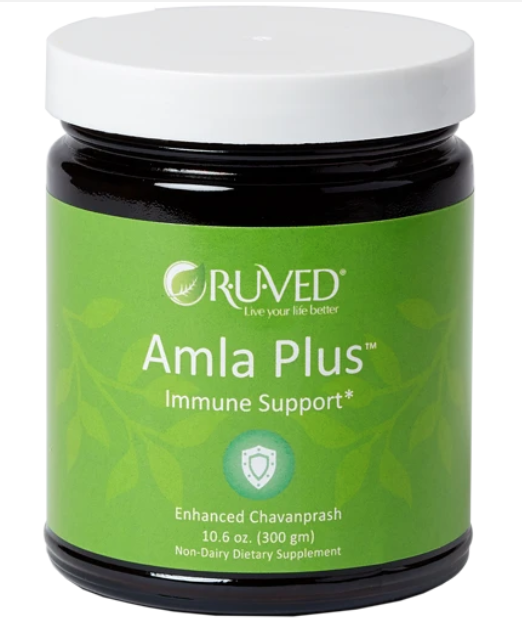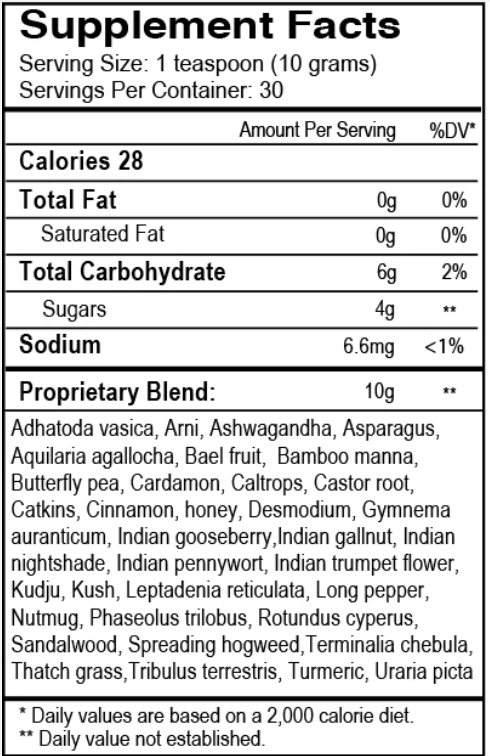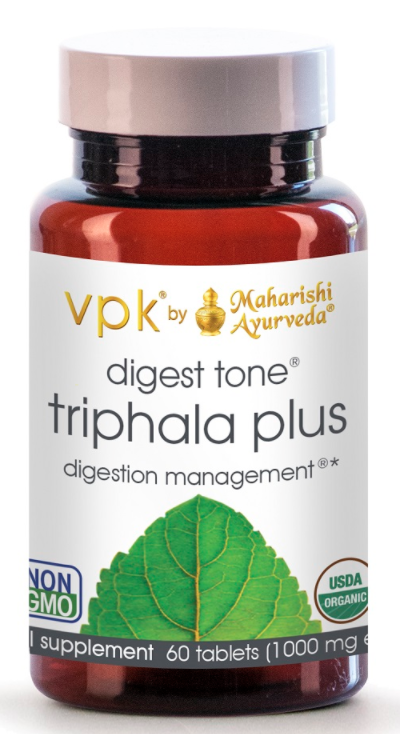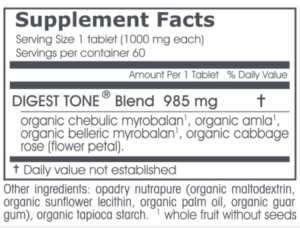What is Amla and what is Chyawanprash? The two questions go hand in hand since Amla (Phyllanthus emblica) is the primary “power ingredient” in Chyawanprash. First, what is Chyawanprash?
Chyawanprash (sometimes spelled chavanprash) is an Ayurvedic immune system tonic that consists of a condensed blend of nutrient-rich herbs and minerals, the main ingredient being Amla (Indian gooseberry). The Ayurvedic system (a 5,000+ year-old traditional Indian healing science that is based on balance) teaches that Chyawanprash restores depleted energy or life force (ojas) energy. It helps to strengthen the immune system while increasing vitality anti-aging benefits.
The Alma berry is the world’s richest source of vitamin C, according to the research of Rohit Sharma from the Central Ayurveda Research Institute for Drug Development. As a robust anti-oxidant, Alma’s effectiveness begins with immune-building properties but does not stop there.
Individuals who consume CP [Chyawanprash) regularly for a definite period of time showed improvement in overall health status and immunity.
Narayana DB et al. See references below.
Researchers Narayana DB, et al, reported in the Journal of Ethnopharmacology that ” […] individuals who consume CP [Chyawanprash) regularly for a definite period of time showed improvement in overall health status and immunity.” The researchers also called for further randomized controlled trials to further substantiate the immune-boosting and other benefits of Chyawanprash.
There are many manufacturers of Chyawanprash, and I’ve selected two as examples of company’s that put an emphasis on organic ingredients, the importance of process, and follow ancient Ayurvedic recipes. The first is an industry leader and was founded by Ayurvedic MDs, I have chosen RUVed® as an example of a highly reputable company that uses organic ingredients when possible and pharmaceutical-grade quality control and testing. Their processing procedures follow ancient Ayurvedic methodologies; a great product can be destroyed by overheating or other inconsistencies in the preparation process. You can learn more about this manufacturer on its RUVed® website.

Here is a list of herbs and other ingredients in Ayush’s R•U•VED® Amla Plus™ formula.

Amla-Based Triphala Plus
For people who prefer a capsule form and want to focus on building immunity through improved digestion, VPK Mapi offers another excellent option. Triphala Plus As the name implies, the focus of this product is to blend amla with digestive and detoxing herbs, including Amla.
Organic Digest Tone®Triphala Plus — Digestion Management®
The ingredients in Triphala Plus are more streamlined than the Chyawanprash blend and targeted towards digestive aid–a primary principle in Ayurvedic medicine to a healthy body.

The ingredients in Triphala Plus or Digest Tone are streamlined when compared to the Amla Plus above. Where the Amla Plus is a broad spectrum Ayurvedic herbal tonic, the Triphala Plus is more focused towards the digestive system. Keep in mind, the digestive tract plays a crucial role in our immune system health.

Why Take Amla?
“Chyawanprash, CP, [Amla is a key ingredient] is an Ayurvedic superfood and healer par excellence that strengthens the immune system and revitalizes the psychosomatic system, a superior, nutritious, and safe health tonic that is beneficial for all age groups and genders alike.”
Rohit Sharma et al. “Chyawanprash: A Traditional Indian Bioactive Health Supplement”
Researchers have reported Amla as the “wonder berry” in the treatment and prevention of cancer (European Journal of Cancer Prevention). But that is just the beginning of scientific research going on for this traditional herbal medicine.
- Helps prevent oxidative stress
- Systemic inflammation
- Lipid profile
- Nutrient-rich immune system support
- Promotes resilience, longevity, and health
- Rich in antioxidants
- Improves overall health
- Improves metabolic syndrome
- Emerging evidence of anticancer activity
In the following YouTube video, Neuroscientist and Integrative Medicine pioneer, Dr. Kulreet Chaudhary discusses Amla in relation to the three doshas. If you would like to find out what your dosha balance (Vata, Pitta, and Kapha) is, click here.
Chyawanprash consists of Amla/Amalaki (Phyllanthus emblica) as a base, which is considered to be a highly effective Rasayana, i.e. the specialized use of herbs, for sustaining homeostasis.
Who is Amla For?
““Amla is the most important medicinal plant in the Indian traditional system of medicine” Manjeshwar Shrinath Baliga, PhD
https://www.clinicaleducation.org/resources/reviews/amla-an-ancient-super-berry-emerges-from-india/#_edn3
Amla Plus is for people who are looking for a comprehensive product that serves as a daily staple to help boost immune support and provide a plethora of benefits from high levels of anti-oxidants.
Caution: If you are pregnant or nursing, or have a pre-existing medical condition, please consult your physician before taking this or any other dietary supplement. Please consult manufacturer’s website for dosing children.
Where Can I Get Amla?
There are several ways to take Amla. I like the Amla Plus formula because it was developed by Ayurvedic physicians (MDs) who understand the intricacies of Ayurvedic and Western medicine. Instead of taking more capsules, I like to consume Ayurvedic formulas more as food rather than medicine. The Amla Plus product can be consumed as you would a jelly or smoothie ingredient.


How Do I Take Amla?
This manufacturer recommends taking 1 teaspoon twice daily or as directed by your physician. Amla Plus can be mixed with hot water like tea (1 tsp to 1 cup of hot water). It can also be used as a fruit spread or added to your morning smoothie.
The Organic Digest Tone (Triphala Plus) should be taken one hour before bedtime and does not need to be taken with food.
References
Goyal, Mandip. “Rasayana in perspective of the present scenario.” Ayu vol. 39,2 (2018): 63-64. doi:10.4103/ayu.AYU_300_18
Usharani, Pingali et al. “Evaluation of the effects of a standardized aqueous extract of Phyllanthus emblica fruits on endothelial dysfunction, oxidative stress, systemic inflammation and lipid profile in subjects with metabolic syndrome: a randomised, double blind, placebo controlled clinical study.” BMC complementary and alternative medicine vol. 19,1 97. 6 May. 2019, doi:10.1186/s12906-019-2509-5
Sharma, Rohit et al. “Chyawanprash: A Traditional Indian Bioactive Health Supplement.” Biomolecules vol. 9,5 161. 26 Apr. 2019, doi:10.3390/biom9050161
Zhao, Tiejun et al. “Anticancer Properties of Phyllanthus emblica (Indian Gooseberry).” Oxidative medicine and cellular longevity vol. 2015 (2015): 950890. doi:10.1155/2015/950890



